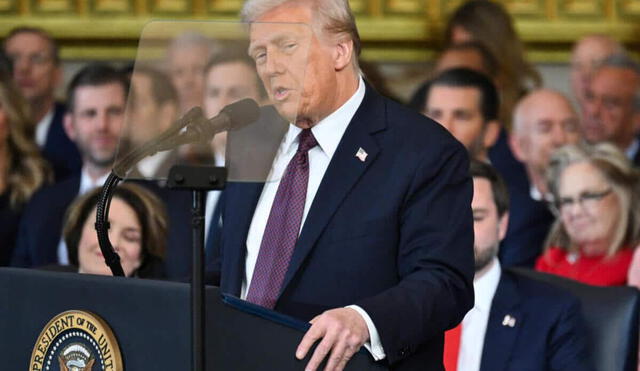Donald Trump withdraws the U.S. from Paris Climate Agreement, advocates for fossil fuel expansion
Donald Trump Announces U.S. Withdrawal from the Paris Agreement, Citing Economic Priorities and Fossil Fuel Support, Stirring Global Debate on Climate Commitments

In a polarizing decision, Donald Trump has announced the withdrawal of the United States from the Paris Climate Agreement. This marks the second departure from the global pact, which aims to limit global temperature rises to 1.5°C above pre-industrial levels. Trump's decision, consistent with his prior administration’s stance, underscores his commitment to deregulating industries and bolstering fossil fuel production.
The announcement has sparked widespread international concern. As the world’s second-largest emitter of greenhouse gases, the U.S. plays a critical role in addressing climate change. Environmental experts warn that this move could undermine global efforts to mitigate climate change and escalate the risks of severe environmental consequences.

Trump announcing the U.S. exit from this agreement. Photo: Forbes
Renewed Exit from the Paris Agreement
Donald Trump has reaffirmed his administration’s stance on climate change by withdrawing the U.S. from the Paris Climate Agreement. This move follows his earlier withdrawal during his first term as president, which was later reversed by Joe Biden in 2021. Trump claims that the agreement imposes unfair economic constraints on the U.S., citing the need to prioritize energy independence and support domestic industries such as oil and gas.
While the decision aims to boost economic growth and reduce regulatory burdens, critics argue it jeopardizes the nation’s environmental leadership. By leaving the agreement, the U.S. joins countries like Iran, Libya, and Yemen, which have not ratified the 2015 climate pact.
Environmental and Global Repercussions
The U.S. withdrawal is a significant setback for international climate efforts. According to a United Nations report, global temperatures are projected to rise beyond 3°C by the end of the century, a scenario that could lead to devastating consequences, including rising sea levels and extreme weather events. Without U.S. participation, achieving global climate goals becomes increasingly challenging.
The decision has also sparked concerns about a domino effect, as other nations may reduce their climate commitments in response. Environmental advocates stress the importance of global collaboration to mitigate the multifaceted impacts of climate change.
Contrasting Domestic Responses
Despite the federal withdrawal, many U.S. states, cities, and private entities remain committed to the principles of the Paris Agreement. Local governments and businesses have vowed to pursue sustainable practices and reduce emissions, highlighting a growing divide between federal policies and grassroots efforts to combat climate change.
